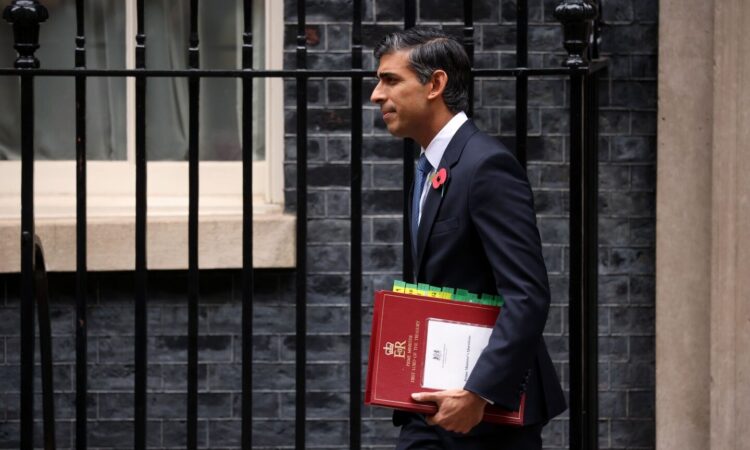
The new power was Sunak’s idea while he was Chancellor of the Exchequer. He wants Britain’s watchdogs to be made more democratically accountable by allowing the finance ministry to tell them what rules to change, create or ditch.
Maybe the power would only be used in “exceptional circumstances” and for matters of “significant public interest,” as ministers have claimed, but these words sound like a slippery slope. The risk is headline-seeking political meddling and unreliable rules. The Prudential Regulatory Authority and the Financial Conduct Authority have warned loudly of the threat to their independence and the UK’s international credibility.
Yet some in the finance industry want the government to take on regulators that they see as too cautious and resistant to change, even as they are wary of disruption.
The UK battle is more complicated than it first appears. Sunak is partly pandering to the strong populist and free-market elements in the Conservative party and in public discourse since the Brexit vote in 2016. Bossing regulators around goes hand in hand with tearing up European Union rules and giving people back their sovereignty.
But behind the politics, this is also about the more mundane problem of how to change EU financial rules. In fact, solving this problem involves giving Britain’s regulators more power, not less.
Let me explain. The way the UK regulatory system works is parliament sets a legislative framework for the kinds of financial policies it wants, and then regulators go off and do the detailed work of writing specific rules for the things that banks and insurers do. The US and other countries have a similar approach.
This appeals to policy makers because they are not financial experts and they don’t want to spend time working out exactly how much capital should be held for different kinds of mortgages or derivatives trades, for example. Outsourcing the job ensures that “regulators’ real-world, day-to-day experience … is central to the regulatory policymaking process,” as the UK Treasury wrote in the introduction to its regulatory reform proposals last year.
But now UK regulators are about to get more power because the government wants to replace a lot of EU-derived financial rules. So someone has to take the EU law that is being scrapped and turn it into regulation that is relevant to Britain. This is dull and technical work for specialists, and understandably the government would rather regulators did it. However, there are certain areas of finance, such as clearing houses, that have been regulated directly by EU law, but which the PRA and FCA didn’t previously have authority over, hence the need for expanded powers.
Populists and free-market types don’t like technocrats having expanded powers. This isn’t just a UK thing: Earlier this year, a US court decision led my colleague Matt Levine to ask if the Securities and Exchange Commission was unconstitutional.
Also, many in the finance industry think Britain’s regulators are run by overly prudent people whose enduring career lessons came from the 2008 crisis. They demand too much capital for banks and insurers, while putting too many restrictions on things like investing in newer infrastructure, such as windfarms, industry executives say. The City partly wants regulators to face more oversight in general, but also right now it is campaigning for some rules to be scrapped or made easier as the regulators adapt them from EU law.
The idea of more accountability isn’t a bad one, but it must be done in the right way. Politicians can already hold regulators to account and scrutinize their work through Parliamentary committees. And new rules have to be put up for public consultation. Sunak’s proposal for call-in power goes too far beyond these safeguards and lets the government start calling the shots directly.
The finance industry might want more accountability for regulators, but executives need to be wary about who gets to wield it — not only now but in all seasons. This power would exist for a future government that might want harsher regulation on restricting consumer lending rates or trading derivatives, say, or wanted to direct finance toward serving some industrial policy.
Bankers might like the free-market leanings of Sunak’s government, but the next prime minister, or the one after that, might not be one of their own.
More From Bloomberg Opinion:
• Is Sunak Going to Overcorrect Truss’s Fiscal Mistakes?: Therese Raphael and Dan Hanson
• SEC’s Vision for Competition in Markets Would Stifle Innovation: Aaron Brown
• Don’t Fear the UK’s Coming Zombie Apocalypse: Matthew Brooker
This column does not necessarily reflect the opinion of the editorial board or Bloomberg LP and its owners.
Paul J. Davies is a Bloomberg Opinion columnist covering banking and finance. Previously, he was a reporter for the Wall Street Journal and the Financial Times.
More stories like this are available on bloomberg.com/opinion






